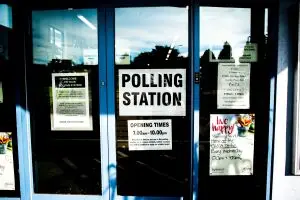With Labour maintaining its lead in the polls, businesses are understandably keen to grasp the Party’s direction on energy policy. The speeches delivered by the Party’s leadership team over the last week, including Labour leader Sir Keir Starmer’s visit to Anglesey on Monday to promote GB Energy, provide useful insight when it comes to the Party’s thinking and the perceived tension between maintaining fiscal responsibility and climate change ambition.
Labour’s decision to reduce its £28 billion a year on green investment pledge to £15 billion, while maintaining its target of decarbonising the electricity system by 2030, sends a strong message about the Party’s dependency on private sector investment to deliver one of its five key missions. A report published by the Policy Exchange thinktank has brought cost delivery concerns under the spotlight again. It is worth noting, however, that the total cost difference between the 2030 target and the Government’s current 2035 target is less than £12 billion over the next 11 years (£116 billion for 2030 compared with £104.6 billion for 2035). [1]
Striking a Balance: Fiscal Responsibility and Climate Ambition
A central theme of the Shadow Chancellor’s Mais lecture delivered last Tuesday 19 March was the need to balance the imperatives of the energy transition and the economic constraints a future Labour Government will face. Reeves committed to maintaining the Chancellor’s current fiscal rules of retaining the two per cent inflation target, only borrowing to invest (with day-to-day costs met by revenues), and “hard-wiring growth” into the Treasury’s approach to the economy. [2]
Her lecture also reiterated the Party’s view on net zero being a key driver of economic stability and growth. This focus on growth will be applied to the Party’s approach to delivering net zero. Companies that can demonstrate how energy policy, regulation and public investment can be shaped to leverage private investment should step up their engagement with the Party. As stated by the Party’s leadership when announcing the scale back in the £28 billion funding commitment, the end destination remains the same, only the route has changed.[3] Notably, this still includes £8.3 billion for GB Energy and £7.3 billion for the party’s planned National Wealth Fund.[4]
Unlocking private investment through an enabling energy policy environment
The Labour Party recognises regulatory and policy uncertainty as a key barrier to growth. In her lecture last week, the Shadow Chancellor pledged to deliver a period of “active Government” that provided certainty and stability to industry, stimulating investment.[5]
The Shadow Energy Security and Net Zero Secretary Ed Miliband has described Labour’s 2030 net zero electricity system was the Party’s “North Star” for its green mission.[6] Miliband has committed a future Labour Government to lifting the block on onshore wind and expediating transmission network investment. Speaking at the Green Alliance event last Tuesday, he also confirmed that a Labour Government would reintroduce the Clean Heat Market Mechanism in 2025, as originally planned. In getting the planning and energy policy right, the Party sees £200 billion of private investment as waiting to be unlocked, and plans to support over 220,000 jobs each year between 2024-35 across the country.[7]
In addition, the next Government will oversee the changes implemented through the Review of Electricity Market Arrangements (REMA) process. To deliver the stability that Rachel Reeves sees as critical to securing investment, these changes will need to be communicated clearly and undertaken rapidly to provide conditions for investment prior to 2030.
Borrowing for Growth: The Case for Green Investment
The Shadow Chancellor has set out a key differentiation between Labour and the current Government as its focus on targeting the current deficit rather than the overall deficit, allowing it to target “investment that would get debt falling as a share of GDP over the medium term.”[8] This presents an opportunity for businesses in the green energy sector who will benefit from clearly demonstrating how their initiatives can facilitate Labour’s plan for economic growth and decarbonisation.
One of the key vehicles for public spending and investment will be the establishment of GB Energy – a publicly owned energy company with three priorities:
- Invest in leading-edge energy technologies
- Co-invest in established energy technologies
- Scale up municipal and community energy.[9]
A proactive energy company seeking to encourage private investment in the UK’s net zero transition presents exciting opportunities. This is especially true for earlier-stage technologies, as demonstrated by the Labour Leader on his visit to North Wales on Monday, where he committed to floating wind as GB Energy’s “first priority.”[10] Companies should be communicating with the Labour Party on the barriers they face and the potential role for GB Energy in addressing these.
It is worth keeping in mind that establishing GB Energy will require primary legislation and it remains unclear how quickly a new Labour Government would be able to set this company up, leaving a gap ahead of its 2030 electricity decarbonisation target where private sector investment will be even more important.
Conclusion: Reaffirming Ambitions and the Role of Private Sector
Private sector investment was always going to be central to delivering the UK’s decarbonisation targets. A Labour Government would see even more ambitious decarbonisation targets in place, and businesses should be aware of the tools that the Party is willing to employ in achieving this target.
The Shadow Chancellor is willing to borrow to invest where there is demonstration of how public investment will support delivery of the Party’s climate change targets whilst delivering economic growth. Businesses should be clear on how changes to energy and planning policy can unlock investment, and the role that GB Energy could play in delivering the Party’s green ambitions. Companies that support the 2030 target should be seeking to engage now, to help support and shape the route to delivery.
BREVIA ENERGY PROVIDES STRAIGHTFORWARD PUBLIC AFFAIRS AND PUBLIC RELATIONS SUPPORT TO ORGANISATIONS OPERATING IN THE UK ENERGY SECTOR.
Discover how Brevia Energy can help you and your organisation by visiting: www.brevia.co.uk/sectors/energy/. You can also contact the Brevia Energy Team on 020 7091 1650 or email contact@brevia.co.uk
Notes
[1] Decarbonising the Grid, Policy Exchange, 25 March 2024, Link
[2]‘Rachel Reeves Mais Lecture 2024’, Labour Party, 19 March 2024, Link
[3] Sir Keir Starmer MP and Rachel Reeves MP, ‘Circumstances have changed, our ambitions have not. That’s what you need to know now about our green plan’, The Guardian, 8 February 2024, Link
[4] Labour cuts £28bn green investment pledge by half, The Guardian, 8 February 2024, Link
[5] ‘Rachel Reeves Mais Lecture 2024’, The Labour Party, 19 March 2024, Link
[6] A zero carbon power system by 2030 is Labour’s ‘north star’, says Ed Miliband MP, Current News, 18 October 2023, Link
[7] ‘Labour sets out plan to “rewire Britain” and build the clean energy grid the country needs’, The Labour Party, 8 October 2023, Link
[8] ‘Rachel Reeves Mais Lecture 2024’, The Labour Party, 19 March 2024, Link
[9] Ibid.
[10] ‘Labour vows to boost UK investment in floating offshore wind’, Financial Times, 25 March 2024, Link




